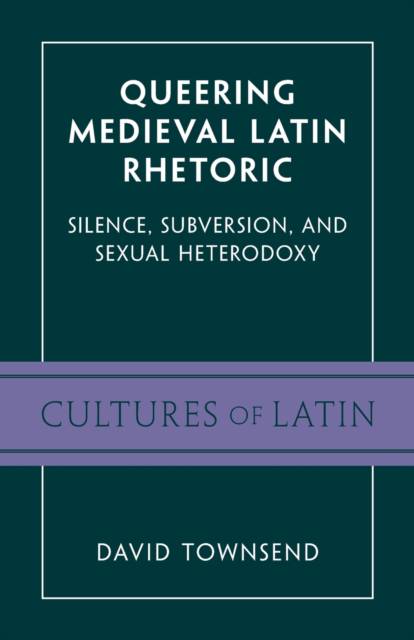
- Afhalen na 1 uur in een winkel met voorraad
- Gratis thuislevering in België vanaf € 30
- Ruim aanbod met 7 miljoen producten
- Afhalen na 1 uur in een winkel met voorraad
- Gratis thuislevering in België vanaf € 30
- Ruim aanbod met 7 miljoen producten
Zoeken
€ 24,45
+ 48 punten
Uitvoering
Omschrijving
This book reflects on what medieval Latin authors don't say about the sex nobody had-or maybe some had-and about how they don't say it. Their silences are artfully constructed, according to a rhetorical tradition reaching back to classical practice and theory. The strategy of preterition calls attention to something scandalous precisely by claiming to pass over it. Because it gestures toward what's missing from the text itself, it epitomizes a destabilizing reliance on audience reaction that informs the whole of classical rhetoric's technology of persuasion. Medieval Latin preterition invites our growing awareness, when we attend to it closely, that silence is not single, but that silences are multiple. Their multiplicity consists not in what preterition is, but in what it does. Preterition's multiple silences enabled subversive interpretations by individuals and communities marginalized under dominant regimes of sexuality-as they still do today.
Specificaties
Betrokkenen
- Auteur(s):
- Uitgeverij:
Inhoud
- Aantal bladzijden:
- 136
- Taal:
- Engels
- Reeks:
Eigenschappen
- Productcode (EAN):
- 9781009206877
- Verschijningsdatum:
- 5/01/2023
- Uitvoering:
- Paperback
- Formaat:
- Trade paperback (VS)
- Afmetingen:
- 140 mm x 216 mm
- Gewicht:
- 158 g

Alleen bij Standaard Boekhandel
+ 48 punten op je klantenkaart van Standaard Boekhandel
Beoordelingen
We publiceren alleen reviews die voldoen aan de voorwaarden voor reviews. Bekijk onze voorwaarden voor reviews.











